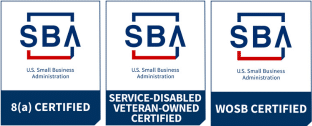The joys and value of checking out, before they need to check you in.
I’m not big on taking breaks for myself. For years I’ve been working 7 days a week and as far as eye no it’s had no ail eefect. Am I that busy that I need to work Saturday and Sunday? Sometimes, but not really. It’s just the neurotic, anxious writer in me that wants to make sure I have a handle on a blog I’m writing. I’ve always been secretly proud that I’ve got a jump on things, and then I did some research on whether working nonstop is a good thing and after what I’m about to reveal here, I realize I could have been a heck of a lot more productive and already have written my great American novel. Well…. since the book I started 20 years ago is titled “My Great American Novel.” That’s one way of doing it, I guess, but first…
Let’s Answer Your Pressing Questions About Breaks
- Will taking a break increase my productivity?
- Is death imminent if I don’t take a break?
- Why is it important to take breaks at work?
- How does taking a break affect my noodle (brain)?
- Should I get my pants pressed at the cleaners?
- How often should I take a break? How long?
- Should I work out or eat, drink and be merry on my break?
- Should I take a break from finishing this article?
The Importance of Taking a Break
According to some smart folks, humans are not wired to concentrate for long spurts, like 8 hours. Studies show that, on average, in an 8-hour workday, people are productive for only 3 hours or so. Plus, not taking a break comes with other negative effects: lack of focus, potentially damaged eyes, and not great decision-making (“Let’s bungee jump naked off the Brooklyn Bridge”). That’s bad news, but here is the good: as almost famous, Nir Eyal explains, “the right kind of breaks can counter these negative effects. Good breaks reduce mental fatigue, boost brain function, and help us stay focused.”
Key Benefits of Breaking Good
- Taking a break helps you think more clearly.
- It increases your ability to focus.
- Break time enables you to retain information better, like the name of your wife or husband.
- Breaks increase productivity.
- It boosts your creativity.
Let’s spend a few sentences talking about why enhancing creativity is particularly important. Here’s why creativity is particularly important and that’s because it affects your pocketbook (is pocketbook gender neutral?). A study by Adobe showed that “creators” earn 13% more than “non-creators.” The study ALSO found that only 32% of people believe they’re living up to their creative potential. So, let’s get going out there. Being creative matters to more than just artists, it matters to business people everywhere! Think of all the creative tasks that are required to stay sharp and at the top of your game in business and grow. You need to constantly think of new ways to reach customers. You need to think of ways to stand out from your competitors. What about creativity in the advertising and marketing you do? Do you want to produce just a boring, old ad that says, “Buy a Volkswagen” or come up with a line like “Think Small.” Then, of course, you may need to come up with new product ideas like “black hole disposal units for kitchen and bath.” (They’re available on Amazon in avocado and brushed chrome.”
How Often Should You Take a Break?
After reading a ton of research (better them than me), SocialTriggers.com comes to the following conclusions:
- The University of Illinois study cited before suggest taking a break once every hour.
- Inc. Magazine suggests a break every 60-90 minutes.
- Time-tracking app Desktime says it’s best to take a break every 52 minutes (followed by a 17-minute break).
- Based on the study of professional musicians, Robert Pozen of the MIT Sloan School of
Management suggests taking a break every 75 to 90 minutes.
How Long Should Your Break Be?
Here’s an authority on how long your break should be– “100 years,” according to the witch in Sleeping Beauty. Moving on to a non-Disney authority, a marketing whiz named Tony Schwartz, the author of The Power of Full Engagement, describes our days as periods of “pulse and pause.” And, he found that humans tend to move from full focus to fatigue every 90 minutes. Here are some studies that offer information about the length and virtue of break times:
- Take short breaks – say 5 to 15 minutes – every hour or so.
- Take a longer break – at least 30 minutes – every 2 to 4 hours (depending on your task).
Of course, your need for a break depends a lot on the type of job you do. For example, someone responsible for defusing bombs might need a break every 5 minutes. What about teachers? I’m told it’s exhausting teaching 5 or 6 different groups of kids through the course of the day. Teachers probably don’t get breaks frequently at all, but in my book, they could sure deserve them.
As a writer, I don’t take a break often enough, hence the fact that my wife rests her computer on my hunchback and types away. That leads me to take a break from penning this blog. As my dad used to say when my brother and I would fight as kids, “that’s enough!” he’d shout. The belt came after that.
In this new year, give yourself a break by contacting The Miner Agency. Break from other sources of marketing assistance and contact us. We’re the place to go for tailored, cost-effective solutions that support your business and communication objectives.

